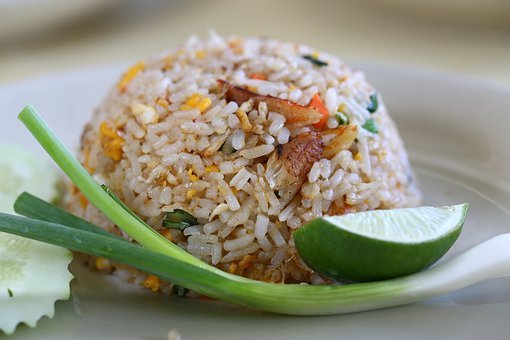Benefits of Eating Rice & Drinking Tea
Rice and tea are both traditional food products with histories going back thousands of years. Modern science has revealed that rice and tea also offer several health benefits to consumers. In addition to providing quality basic nutrition, rice and tea have the potential to build up the body's resistance to certain ailments. As an alternative to unhealthy, processed foods, both rice and tea encourage positive food and beverage choices.
Nutritional Value of Rice
Rice is available in both brown, white and wild varieties. Brown rice is classified by the U.S. Food and Drug Administration as a whole grain and has an intact outer layer. White rice has had its bran removed and is typically fortified with vitamins and minerals. Both are highly nutritious, although brown rice often has a higher fiber content. Rice is low in saturated fat and cholesterol, making it a heart-healthy food choice. As the foundation of so many world cuisines, rice may be incorporated into a variety of meal ideas.
Energy Richness of Rice
All rice varieties are full of complex carbohydrates -- long chains of sugar molecules that digest very slowly. Some of these molecules, also called rice starches, remain intact all the way to the large intestine. Rather than the quick burst of energy provided by simple sugars, the carbohydrates in rice offer more sustained, fulfilling energy. Rice starches also offer benefits to those at risk for diabetes. These starches don't impact blood sugar levels as much as many processed foods. Scientists believe that rice starches may, in the future, be incorporated into food products for diabetic people.
Tea as Hydration
Contrary to popular belief, tea does not lead to dehydration. The main ingredient in tea is water, and ordinary tea doesn't have enough caffeine to cause a net fluid loss. Tea may also be enhanced with natural flavorings like honey or mint. For those who balk at drinking eight glasses of water each day, replacing several of these glasses with tea may be a solution. Soft drinks, on the other hand, include added ingredients that provide nothing in terms of hydration or nutritional value.
Antioxidant Powers of Tea
Several of the natural chemicals found in tea have the potential to protect cells from damage to their genetic material. These antioxidant chemicals absorb rogue oxygen atoms known as free radicals, which doctors have implicated in cancer development. Certain tea compounds have also been shown to slow tumor growth, while others work to inhibit tumor formation. The science behind tea's cancer-fighting powers is still young, and researchers don't completely understand what many of the components of tea actually do inside the human body.
